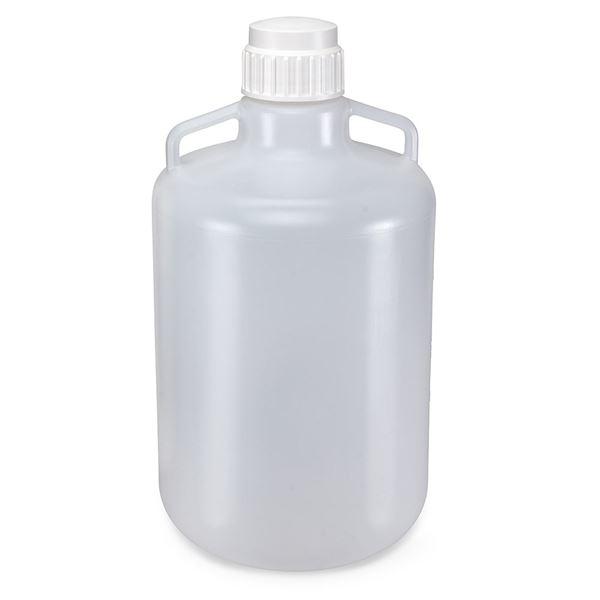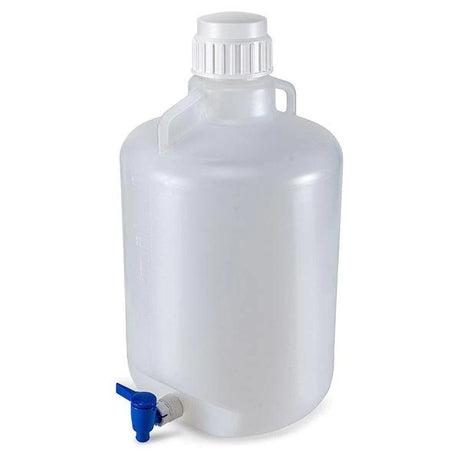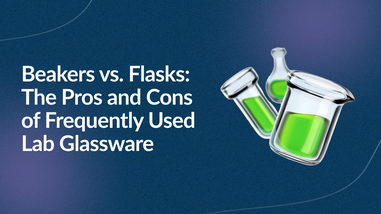- No products in the cart.
In the intricate world of laboratory management, selecting the appropriate equipment is paramount. One such essential piece is the carboy, a vessel designed for the safe storage and transportation of liquids. However, with various options available, navigating the selection process can be daunting. This comprehensive guide aims to simplify the decision-making process for lab managers, ensuring they choose the right carboy to meet their specific needs.
Understanding The Importance Of Carboys In Laboratories
Before delving into the selection criteria, it's crucial to grasp the significance of carboys in laboratory settings. These versatile containers play a pivotal role in storing various liquids, from chemicals and reagents to solvents and media. Moreover, they facilitate safe handling and transportation, minimizing the risk of spills, contamination, and exposure to hazardous substances. As such, selecting the appropriate carboy is essential to maintain the integrity of experiments, ensure safety protocols, and optimize workflow efficiency.
Determining Your Laboratory's Requirements
The first step in choosing the right carboy is to assess your laboratory's specific requirements. Consider factors such as the types of liquids to be stored, volume capacity needed, compatibility with storage conditions, and frequency of use. Additionally, evaluate any specialized features required, such as leak-proof seals, chemical resistance, and compatibility with sterilization methods. By understanding your laboratory's unique needs, you can narrow down the options and make a more informed decision.
Types Of Carboy Materials
Carboys are available in a variety of materials, each offering distinct advantages and considerations. Common materials include:

-
Polyethylene (PE): Lightweight and economical, PE carboys are ideal for general-purpose applications. They offer excellent chemical resistance, making them suitable for storing acids, bases, and solvents. However, they may not be compatible with certain organic solvents or high-temperature applications.
-
Polypropylene (PP): PP carboys are known for their superior chemical resistance, particularly to organic solvents and corrosive substances. They are also autoclavable, making them suitable for sterilization. However, they may be less transparent than other materials, limiting visibility of contents.
-
Glass: Glass carboys are preferred for applications requiring visibility, such as media storage and fermentation. They offer excellent chemical compatibility and can withstand high temperatures and sterilization methods. However, they are heavier and more fragile than plastic counterparts, posing a greater risk of breakage.
-
Fluoropolymer (e.g., PTFE): Fluoropolymer carboys offer unparalleled chemical resistance, particularly to aggressive acids and bases. They are also non-stick and easy to clean, making them suitable for high-purity applications. However, they tend to be more expensive than other materials.
Key Considerations For Selection
When choosing a carboy for your laboratory, consider the following key factors:
-
Chemical Compatibility: Ensure that the material of the carboy is compatible with the liquids to be stored, taking into account factors such as pH, temperature, and concentration.
-
Volume Capacity: Select a carboy with an appropriate volume capacity to accommodate the required quantity of liquid, considering factors such as storage space and usage frequency.
-
Specialized Features: Assess any additional features required, such as spigots for dispensing, handles for ease of handling, and graduations for accurate measurement.
-
Safety and Compliance: Prioritize safety considerations, such as leak-proof seals, tamper-evident closures, and compliance with relevant regulatory standards (e.g., FDA, EPA).
Maintenance And Care
Once you've selected the right carboy for your laboratory, proper maintenance and care are essential to ensure longevity and performance. Follow manufacturer guidelines for cleaning, sterilization, and storage. Regularly inspect for signs of wear, damage, or degradation, and replace as necessary to maintain safety and integrity.
Conclusion
In conclusion, choosing the right carboy is a critical decision for lab managers, impacting experiment integrity, safety, and efficiency. By understanding your laboratory's requirements, evaluating material options, and considering key selection criteria, you can confidently select the optimal carboy to meet your specific needs. Remember to prioritize safety, compliance, and proper maintenance to ensure optimal performance and longevity.
For over 40 years, Lab Pro Inc. is your steadfast source for premium lab equipment, cleanroom lab supplies, hand tools, lab equipment, chemicals, and PPE apparel. Trusted by aerospace industries, medical device companies, and laboratories globally, we epitomize exceptional quality in every product. Experience the convenience of next day service in California. Contact us online or at 888-452-2776 to explore solutions tailor-made for the laboratory industry. Elevate your experiments with Lab Pro Inc. – your partner in precision and excellence.












































